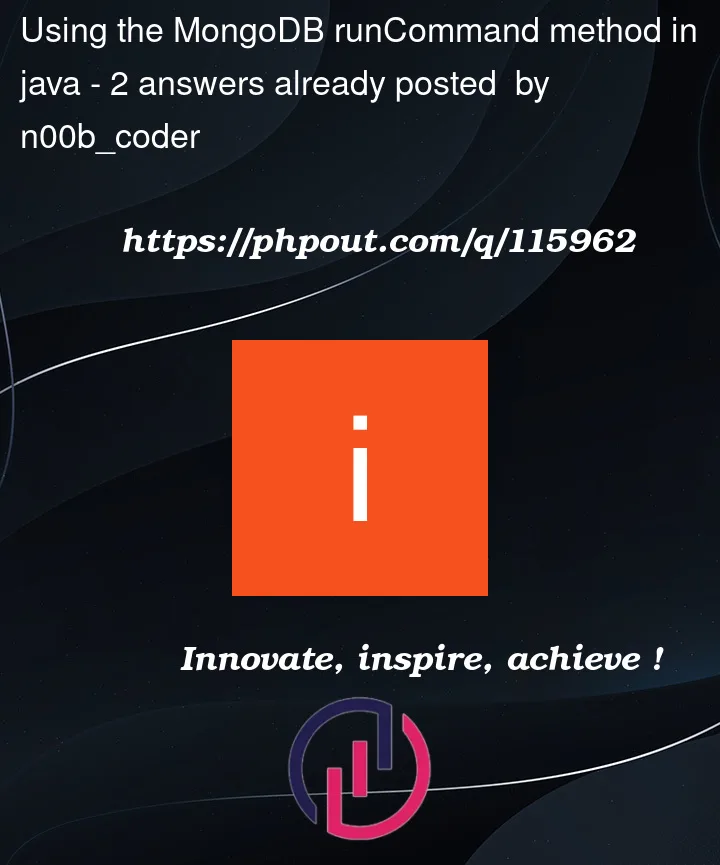How to use MongoDB runCommand method in java?
i’m using this db.runCommand( { explain: { update: "info.asset", updates: [ { q: { "version": 3,"providerAssetId":"123" }, u: { $set: { "version": 9 } }, hint: { providerAssetId: 1, version: -1 } }] }, verbosity: "executionStats" }) in mongoDB console, But I want to use this command in Java, can any one suggest me how to use this in Java?
I’m using mongo-java-driver-3.3.0.jar
thank you
example :
DBObject explain = coll.find(condition).sort(order).limit(count).explain();
I can use explain for find method, but I don’t know how to use explain on update method in java




2
Answers
As I recall, explain is not supported anymore for most of methods. You can use fully the same RunCommand method in java as in the shell
Let’s say you have
MongoClient,MongoDatabaseandMongoCollection:you want to execute
db.runCommand(...)this command should be executed on db level (not on collection), it means you have to call smth like this: